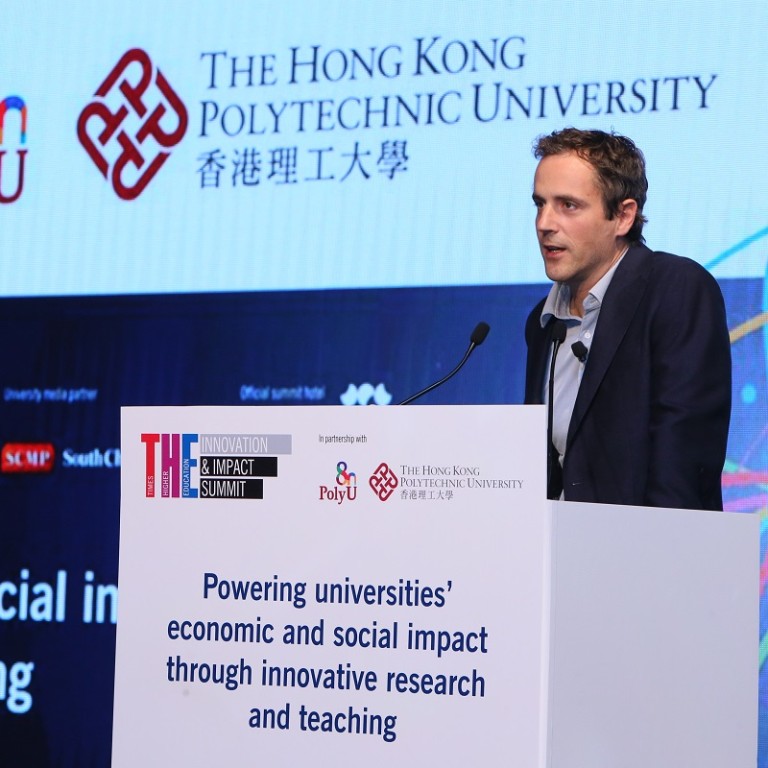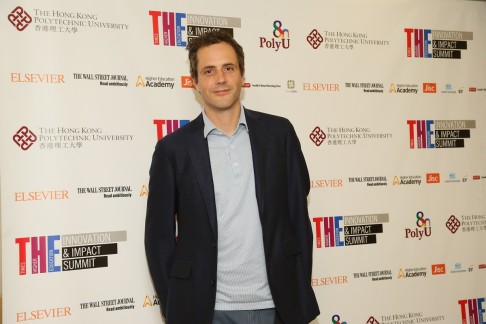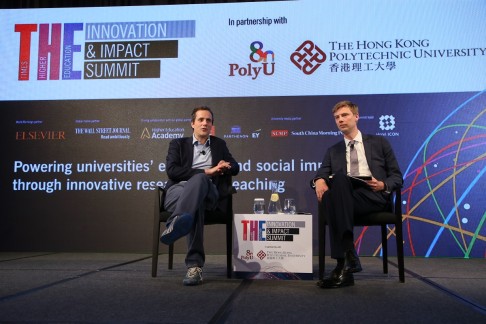
Producing high quality innovation
[Sponsored article] Having set the objective of launching over 200 new start-ups in the next five years, co-founder and CEO of Founders Factory, Henry Lane Fox set out to find the entrepreneurs who can survive in the long-run.
[Sponsored article] Having set the objective of launching over 200 new start-ups in the next five years, co-founder and CEO of Founders Factory, Henry Lane Fox set out to find the entrepreneurs who can survive in the long-run.
As an accelerator, Founders Factory helps businesses scale up. They invite groups of 30 start-ups to their offices for six months at a time, invest seed capital and lend them resources, provide access to a global network of top experts and corporate partners in the six sectors of travel, beauty, media, education technology, financial technology and artificial intelligence (AI).
The success rate of these companies in raising funds is over 60 per cent, according to Lane Fox, who was speaking at the Innovation and Impact Summit 2017 organised by Times Higher Education in partnership with The Hong Kong Polytechnic University.
As an incubator, Founders Factory helps build new businesses. They source ideas with corporate partners, bring in founding teams, build products from prototyping over 120 technologies each year and, ultimately, give birth to new businesses.

It became clear to Lane Fox that success depends on having strong core teams. In order to scale up their start-ups within the next few years, Founders Factory will need close to 1,000 experienced and passionate entrepreneurs. The challenge, as always, was finding elite talent.
To this end, he has been looking to build an AI-based solution to this challenge. They scoured websites such as LinkedIn, CrunchBase, AngelList for career paths of very successful entrepreneurs, and also talked to HR from whom they received some great recommendations.
“It turned out to be extremely complicated to acquire data around some soft skills that we deemed to be very important in a successful entrepreneur, such as raw intelligence, resilience, charisma, determination, the ability to inspire a team and raise capital,” Lane Fox said. Other important abilities include decisiveness in high-pressure situations, a detailed understanding of software and hardware, collaboration and teamwork, and an ability to spot the problems that are really worth solving in an industry.
“You can’t create an entrepreneur from scratch, but I do believe there are individuals with the right characteristics, whom you can nudge in the right direction and give them the tools to be effective,” said Lane Fox, who is now also working with large companies’ HR teams and universities for better results.
The latest project is building Lorenzo, the AI that will automate candidate selection for every type of job. This means systematically analysing and classifying businesses all over the world and building an enormous database for the entire workforce across an enormous number of different industries. While this process is still in its early stages and the sample size is rather limited, Lane Fox is confident that Founders Factory will make a major breakthrough in this area. Lorenzo is not meant to eliminate the interview process, but help find the best applicants within a pool of thousands of applications.
Another important consideration is “what makes an effective team aside from talent?” According to the experiences of Google, what separates the most successful teams from the average ones is effective communication.

Another important consideration when it comes to entrepreneurship is the almost counter-intuitive notion of academic success. In the start-up ecosystem, many successful entrepreneurs leave university in favour of starting up their own business. So, are academic results important in entrepreneurship?
“Academic excellence is important, but not the sole factor. Raw intelligence is really crucial; however, this is not always reflected in academic success,” said Lane Fox.
He went on to say that universities often play an important role in encouraging and inspiring young entrepreneurs.
““[Universities] should be a bridge between students and successful business people, support applied research rather than general research, help entrepreneurs realise the type of problems that can be solved and should be focused on, and help students learn how to think and tackle problems in a logical way.”
Finally, Lane Fox believes that schools play a key role in two very important areas of development for Founders Factor: research and technology.
“Universities should experiment more and adopt new technologies faster. They should be at the forefront of research rather than sitting at the side-lines,” he said, emphasising the importance of university research capacity and citing a long list of very successful businesses, all of which started out with university research.
